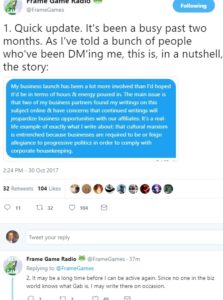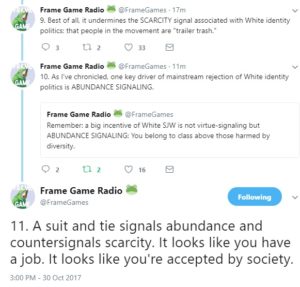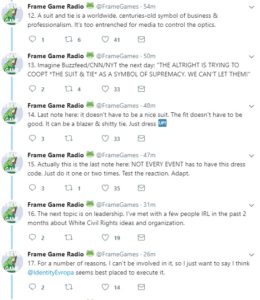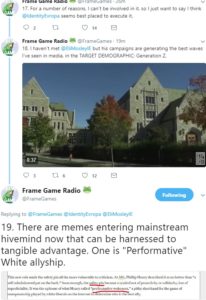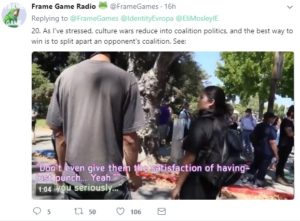Some figures once associated with the ENR have attacked it for a similar reason, but from the right rather than the left. These critics, most prominent among them the journalist Guillaume Faye, believe that the ENR’s high-minded, universalistic rhetoric about difference is a sham. Faye rejects the idea that the movement should fight, as de Benoist put it, for “the cause of peoples,” urging it to instead be honest that it really cares only about the fate of Europe—especially as it relates to Muslim immigration, which Faye sees as a mortal threat. In Faye’s view, dancing around this uncomfortable truth with talk of an abstract right to difference serves only to water down the ENR’s message and weaken its impact.
Faye has also rejected de Benoist’s preference for abstract metapolitics designed to persuade elites and change the culture. He has argued that because of Europe’s demographic trajectory, which points toward a steadily declining white share of the population throughout the twenty-first century, Europeans do not have time to wait for the cultural landscape to change; instead, practical politics must begin today. Faye’s manifesto Why We Fight calls for a “fight with a sense of urgency, to stop the invasion and reverse Europe’s biocultural destruction.” The book is now a mainstay on the alt-right in the United States and is promoted by alt-right groups such as Identity Evropa.
From its birth until the recent past, the ENR received little attention from the American right, despite making waves in France and other European countries. The lack of interest on the mainstream right is easy to understand. The ENR rejects nearly every element of U.S. conservatism, including capitalism, Christianity, and support for the United States’ international hegemony. It is thus unsurprising that the movement long received only cursory attention from mainstream U.S. conservative outlets such as National Review…
These European ideas are finding a receptive audience in the United States for many reasons. One is the declining legitimacy of mainstream U.S. conservatism, which has prompted a search for right-wing alternatives to what is increasingly perceived as a calcified and anachronistic ideology. Ideas taken from the ENR are also useful for those who wish to provide an intellectual gloss to crude racist attitudes…
The European far right’s influence on its U.S. counterparts now extends beyond works of political theory. The use of the term “identitarian” to describe American white nationalists—a rhetorical device that is increasingly common among alt-right ideologues and serves to soften the movement’s image—is similarly adopted from Europe.
The alt-right is also borrowing activism tactics honed by the European far right. Having apparently learned a lesson from the Charlottesville rally—which was a major propaganda defeat for the alt-right—the movement is increasingly turning to so-called flash mobs. Rather than announcing their activities months in advance and giving their opponents time to organize, alt-right supporters rapidly assemble, declare their message, and disperse before counterprotesters can mobilize—a method that the European identitarian movement has used for years. The European far right has in turn adopted tactics pioneered in the United States, such as online trolling.

